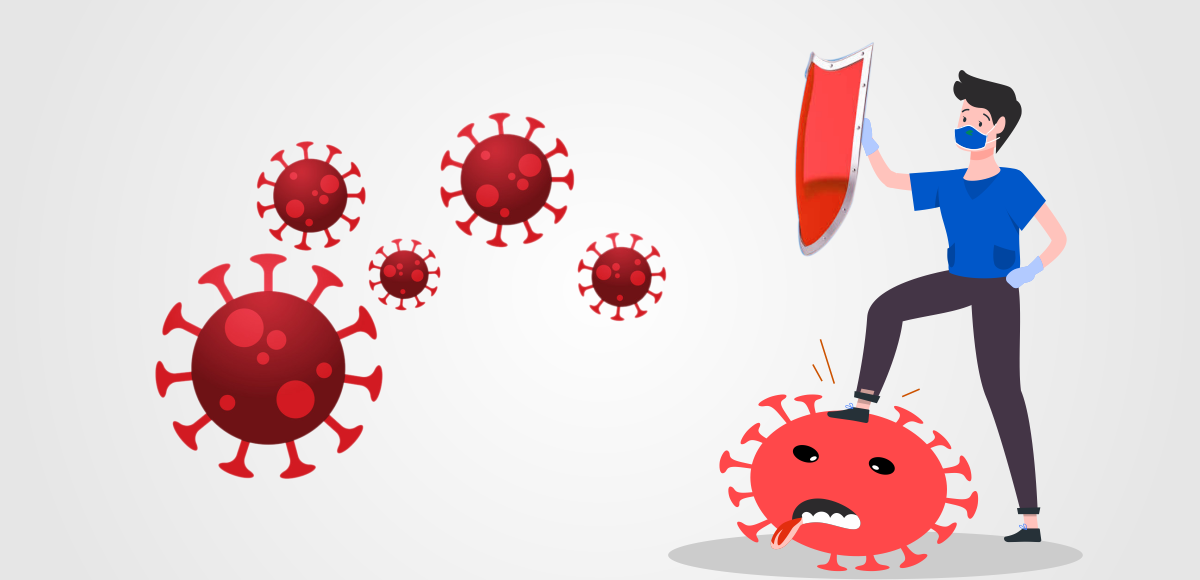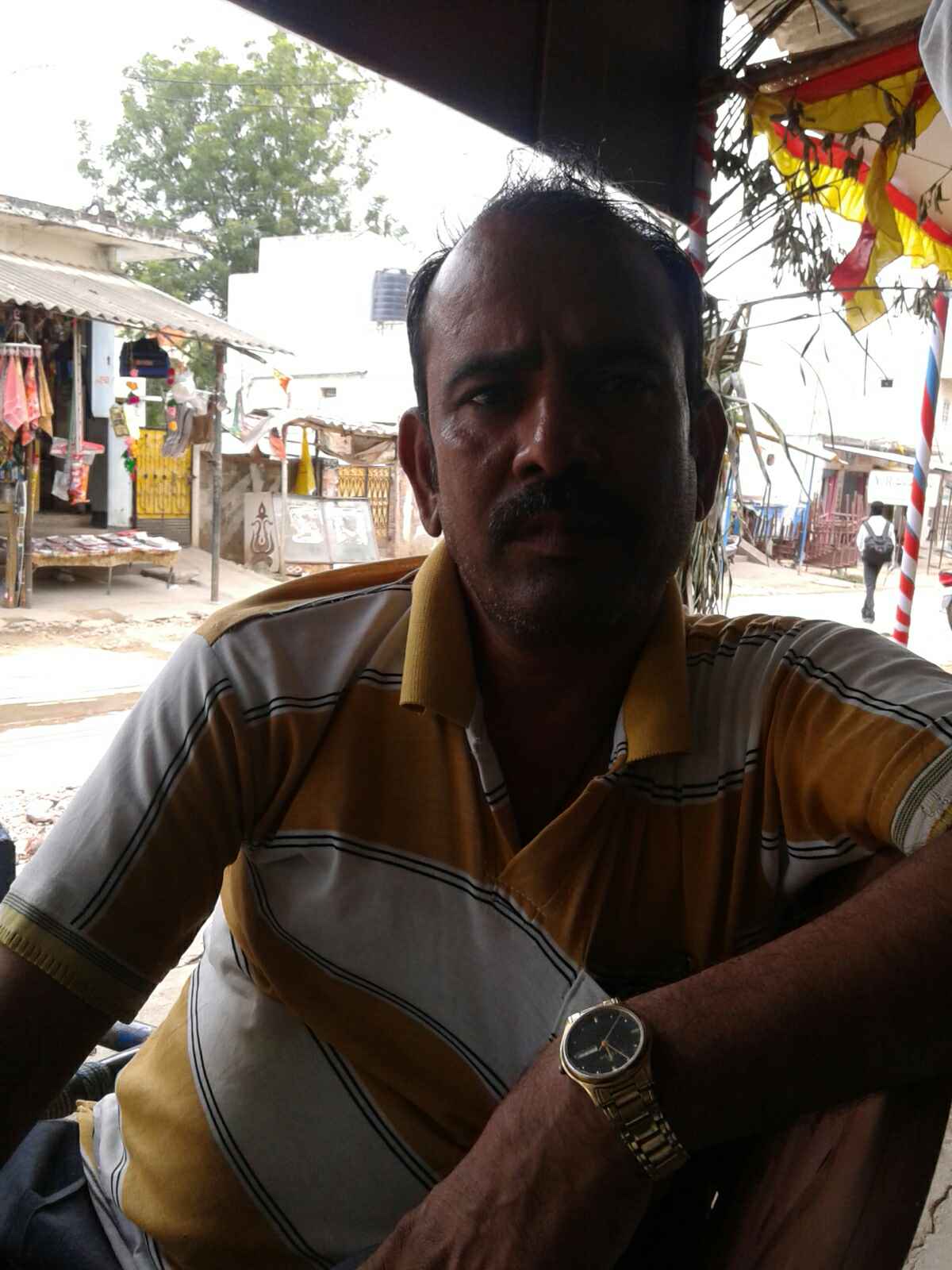

Coronavirus is a category of virus that causes respiratory disorders in humans. The disease caused by the virus is referred to as COVID-19 (coronavirus disease 2019). It was first identified in Wuhan city of China as a source of a pneumonia-like outbreak in 2019. Soon, the virus spread across continents.
In March 2020, the World Health Organization (WHO) declared it a pandemic and worldwide health emergency. No prescribed drug or medicine is available to treat this disease. Vaccines are now available, but it will take a long time to give shots to the entire population. Thus, prevention and treatment of coronavirus is paramount to avoid transmission.
How does coronavirus spread?
Coronavirus majorly spreads from close contact (less than approximately 6 feet) with an infected person. You may get infected by inhaling the respiratory droplets released by a carrier or host of this virus. It can be via coughing, sneezing, talking, or simply breathing. The infected respiratory droplets can also enter your body through the mouth or eyes.
Besides that, coronavirus can be transmitted by shaking or rubbing hands. A healthy person can get infected if he/she comes in contact with a surface that is already being touched by an infected person. However, the coronavirus on non-living objects remains active only for a short period of time. Thus, transmission through this method is rare.
Scientists reported that airborne transmission of coronavirus is also possible. This is because the virus remains active in the air for a brief duration.
What are the symptoms of coronavirus disease?
Symptoms of the coronavirus disease appear in humans within 14 days of getting infected. They can be mild to severe, depending upon the strength of your immune system. It has been reported that some people who have been infected by this virus remained asymptomatic. Yet, some suffered from pneumonia and severe respiratory problems. Death by the COVID-19 is also possible for those having weak immune systems or any critical health disease.
Some common symptoms of coronavirus disease are as follows:
- Fever
- Cough
- Breathing difficulty
- Common cold
- Loss of taste and/or smell
Other less commonly incurred symptoms include muscle pain, diarrhoea, nausea, rashes, sore throat, finger or toes discolouration, vomiting, etc.
How to prevent the coronavirus?
Although the vaccine is now available, its effectiveness is still unknown. Prevention and treatment of coronavirus is the most practical approach, for now, to stay safe. Following are some of the WHO and CDC recommended steps that you should follow to decrease its transmission rate:
- Wash your hands thoroughly with alcohol-based hand wash regularly, especially after reaching back home from an outdoor trip.
- Cover your face with a mask and hands with gloves every time you go out.
- Sanitize your hands frequently with an alcohol-based sanitizer.
- Avoid touching your eyes, face, nose, or mouth again and again.
- Sanitize vegetables, fruits, and other groceries before consumption
- Maintain 6 feet distance from everyone in a public place.
- Visit public places only if absolutely necessary.
- Avoid going to restaurants, malls, supermarkets more often
- Consult a doctor if you have symptoms like cough, fever, troubled breathing, etc.
- Have a proper diet and include immunity boosters to your meal.
- Get a COVID test done if symptoms persist for a long duration.
What are the treatments for the coronavirus?
No 100% effective drug or medicine has been developed yet for coronavirus. Doctors suggest health measures and drugs that could relieve symptoms of COVID-19. Only patients with severe health conditions need to be admitted to the hospital. Rest others can recover from by COVID home care measures. Some of them are suggested as follows:
- Drink lots of fluid, especially water, and keep your body hydrated.
- Take complete bed rest to avoid overexertion of the body.
- Stay in complete isolation until you are tested negative.
- Schedule a visit with a doctor but call them or contact them online.
- Include immuno-boosters in your diet.
- Only take medicines suggested by the doctor.
- Avoid overdose of pain relievers like paracetamol.
Currently, FDA has approved two types of medication for patients hospitalized because of COVID-19:
- Remdesivir (Veklury): For 12 years or older patients
- Monoclonal antibodies:
- Bamlanivimab by Eli Lilly
- Casirivimab and Imdevimab by Regeneron Pharmaceuticals
Convalescent plasma infusion is considered as the last resort if none of the above methods work and the patient's condition continues to deteriorate.
COVID-19 patients suffering from severe acute respiratory syndrome (SARS) and the Middle East respiratory syndrome (MERS) are treated by several experimental therapies like:
- Antiviral medicines
- Mechanical ventilation for breathing support
- Steroids for reducing swelling and inflammation of lungs
COVID Vaccine
Prevention and treatment of coronavirus can reduce the rate of transmission but won't eliminate the risk of disease. A more permanent solution to fight this virus is getting a vaccination. With the continuous efforts and dedication of doctors across the world, the COVID vaccine is finally available for use. Following are some of the vaccines that are authorized and approved for use by the Indian government:
Covaxin:
Covaxin has inactivated coronavirus from the sample collected by India's National Institute of Virology. Two doses are required to be administered at a four weeks time gap.
Covishield:
Covishield is manufactured from diluted and modified versions of adenovirus. People are required to be vaccinated with 2 shots within a 4 to 12 weeks time gap. As per the clinical trials at Oxford-AstraZeneca, Covishield is considered to be 90% effective.
The government is giving priority to doctors, nurses and other healthcare personnel, front-line workers, pregnant women, and people with underlying medical conditions for vaccination. This is because they are at higher risk of getting infected by coronavirus as compared to the rest of the population.
Many other organizations are also conducting clinical trials for the COVID vaccine. However, vaccination at once for such a large population as India is not possible. Prevention and treatment of coronavirus is still the best way to move forward.
People are advised to follow all precautions and maintain a safe physical distance until the vaccination drive is successfully completed.
